Athole Still on Sean Connery, Fake Sheikhs and Sven-Goran Eriksson going to Hearts
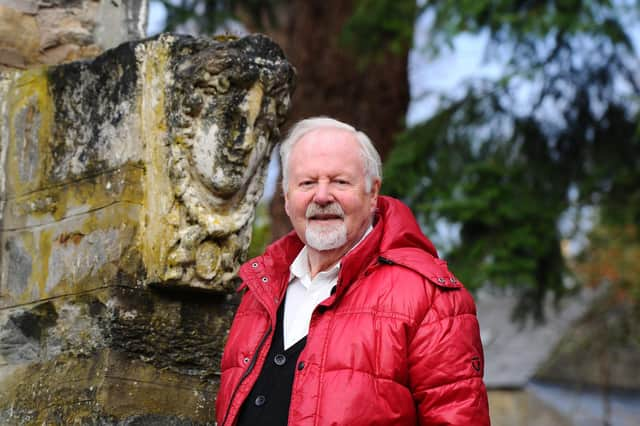

They had been whirring anyway because for Athole Still they never stopped and at 87 haven’t done even yet. A Commonwealth Games silver medalist in the swimming pool, he’d become an agent with a client list including Bobby McGregor who’d swam to silver at the Olympics. “On three separate occasions, passport control in the States had this strappingly handsome fellow approach the desk and thought they were greeting Sean,” says Still. “The likeness was strong so, with the search ongoing for a new 007, I thought: ‘Why not Bobby?’
“I tracked down [Bond producer] Harry Saltzman to Mayfair. ‘I’ve got just the man for you,’ I said. ‘Same height - 6ft 2ins - same magnificent chest, same dark hair and give or take 25 miles the same accent.’ Harry said: ‘That’s a shame, he sounds great but I think you’re just a bit too late.’”
Advertisement
Hide AdAdvertisement
Hide AdDoes Still have another Connery story? Oh yes, and this one is from 1979 when he persuaded 3,000 golf clubs nationwide to sign up to Unesco’s International Year of the Child with the first prize in the fund-raiser a round of golf with Scotland’s greatest star. “He was a tricky man to pin down and when we finally agreed to meet at London’s Dorchester Hotel it was me who was tied up with something else so I sent along my wife Isobel. To this day she still talks about knocking on the door of his suite and being greeted by Sean just out of the shower, towel round his waist and showing off his magnificent chest.”
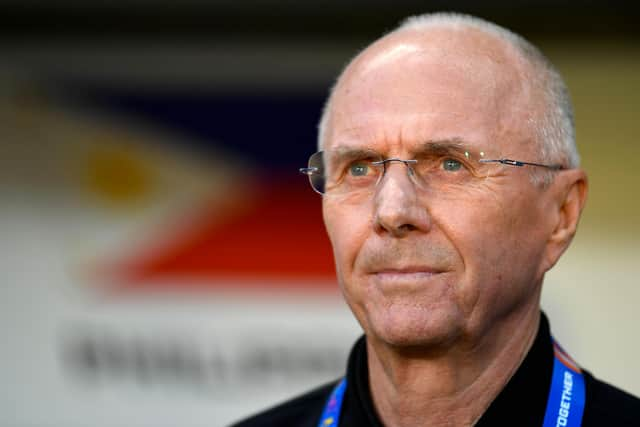

He’s a man o’ pairts, is Athole Tosh Still. There were the commentator years and also the opera tenor years, these two colliding gloriously in the most harum-scarum of his many yarns. By the way, that’s not a name easily forgotten. “But occasionally mispronounced,” he laughs. “I’ve been across to China 14 times, the most recent being 18 months ago with Sir Steve Redgrave when he became their first high-performance director of rowing. The Chinese, bless them, have always addressed me as ‘Asshole’.”
His best-known and most notorious client and the one that’s required all the agent’s firefighting skills is Sven-Goran Eriksson. It’s a long time since the peak notoriety for the Swede of being snared by the News of the World’s Fake Sheikh, but he still gets quoted for managerial gigs, presumably thanks to our man. The day before Still and I speak, for instance, Eriksson’s name comes up in BBC Scotland’s behind-the-scenes Hearts documentary as a managerial contender last season for Tynecastle.
A serious one? A contributor to the programme with his ear to the ground - actually the groundsman - doubted this. “Oh yes,” says Still, “Sven would have come, the money wasn’t going to be an issue, but Hearts didn’t want him. I think I should spare their blushes by not revealing their reason.” (Off the record he tells me, and it seems the club had forgotten about the greater part of Eriksson’s career). So having most recently been the Philippines’ national coach, he continues job-hunting. “We spoke earlier today. He’s still passionate about the game.”
Still has cleared an hour for our chat and stresses a few times that those precision-engineered wheels of his remain in good nick. “I’m still working full-time,” he says with pride. Though he will mention the passing of more than a few friends and associates, the contacts book has always bulged. “And listen to the voice,” he adds. “I hope you agree it’s not that of an 87-year-old. The north-east accent with its pure vowels has been important in my life.”
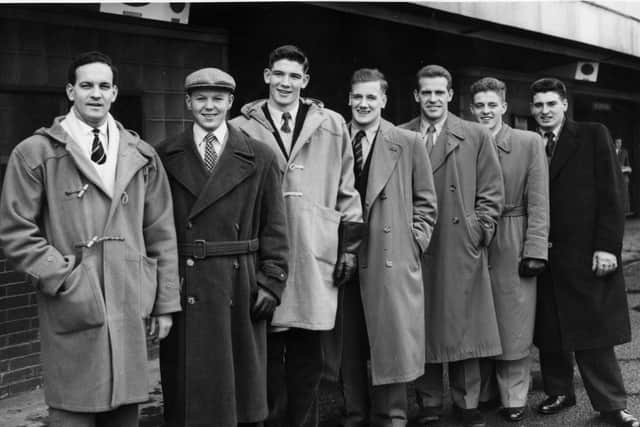

The hour down the line, Still at home in Strathtay, Perthshire, turns into two and, not wanting to seem presumptuous or boastful, he reckons we only skim the surface. I’m content with what I get, though, not least because when he talks about his young life growing up in Aberdeen in modest circumstances, this seeming to be a world away from the one inhabited later, it’s still possible to identify the schemer in the making, the lad keen to get ahead and seize opportunities.
He says: “My dear mother told me that when I was three years old I burned my foot quite horribly almost toppling into a boiler. It was all ballooned-up and bandaged when I got home from hospital and apparently I used to sit outside under a blanket asking kids from the neighbourhood if they wanted to see the terrible injury, then charging them a sweetie cigarette card for a peek.”
Still’s father - also Athole, as were his grandfather and great-grandfather - was a labourer at a dockside sawmill. “I was brought up in a two-roomed tenement with an outside toilet. But this isn’t the story of a poor boy who did quite well for himself because although there wasn’t much money around I was blessed by two of the most enlightened parents you could possibly imagine.”
Advertisement
Hide AdAdvertisement
Hide AdAged 11 he’d mapped out the next phase. “I’d done well enough in my exams to get into the local grammar school but I was in awe of Robert Gordon’s College. The big gates, the great lawn - it looked like Aberdeen’s Eton. My primary headmaster said: ‘But we don’t have an offer from them.’ ‘Let’s wait and see,’ I said.” Eventually a scholarship arrived and maybe this was early evidence of the patience and canniness Still would bring to the negotiating table for football clients like John Barnes, Gianluca Vialli and three Scotland managers: Craig Brown, George Burley and Gordon Strachan.
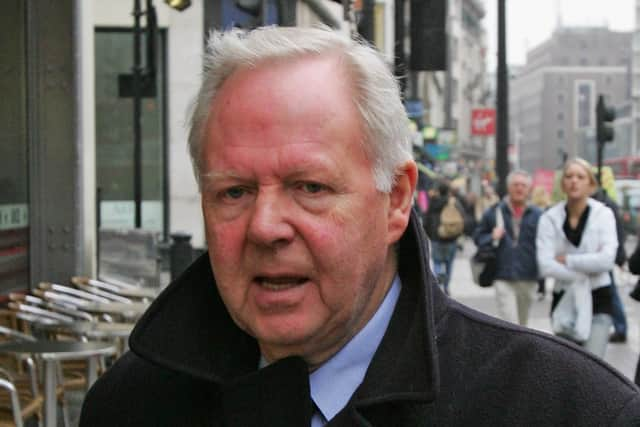

He was popular with his peer group for setting up a clandestine pie run. “Everyone was supposed to use the tuck shop and only that. Visiting Stephens Bakery, who made wonderful pies, was forbidden but I discovered a route through the bowels of the technical college next door so I placed a regular order for two dozen, making a penny profit on each.”
As a swimmer right through the 1950s, Still was one of the top three “sprinters” in the UK - the term for the old 110-yard freestyle - and a regular record-breaker. “In truth I was a bit on the short side but I compensated with great technique, which I owed to Andy Robb, a mainstay of my life who wasn’t even on the teaching staff at Robert Gordon’s but looked after the pool, and who coached several future Olympians.”
Enrolling at his alma mater coincided with him discovering betting - “Don’t call it gambling.” The odd success would pay for foreign swim travel and after the Helsinki Olympics of ’52 the high-water mark, as it were, came at the ’58 Cardiff Commonwealths as part of the Scottish 4x220-yard relay team. “The rest of us had to thank Ian Black for our silver medals,” he says of his fellow Robert Gordon’s FP, the first Scottish winner of the BBC’s Sports Personality of the Year. “Ian was a phenomenon, a genuine superstar at a time when swimming was regularly on TV, and the only reason he didn’t win gold at the [1960] Rome Olympics was because he couldn’t secure adequate training facilities in Aberdeen. That was scandalous.”
In broadcasting, Still worked for BBC and the nascent Grampian TV. Mainly swimming, although he would sometimes be pressed into service for Come Dancing: “There was one nearly disastrous night in Glasgow. I’d done all my research and was ready to go with lines like: ‘And here’s Annie McSnafferty in a dress made by her mother. Seven thousands sequins all told … ’ At the last minute I learned that two of the dancers had called off. Suddenly half the floor had new numbers on their backs. I was - forgive me - absolutely shitting myself. Then I dropped all my notes … ”
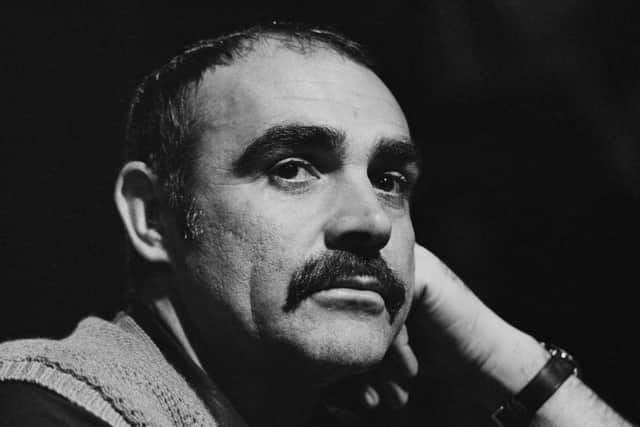

Happier at poolside he enjoyed commentating but was starting to think about a new number for himself, a dramatic change of direction for something to do with singing, a passion he inherited from his mother, Molly. “She was an amazing woman, lived to 99, somehow found the money for an upright piano and taught herself to play despite being extremely hard of hearing. I’m convinced she sang to me in the womb.”
Suddenly there was a fair old culture-clash going on. Still was helping bookmaker and future Aberdeen FC director Bobby Morrison - who’d handled his very first bets - open the Granite City’s first casino in a former Scout hut while at the same time receiving singing lessons from Kenneth McKellar’s tutor.
The Royal Opera House at Covent Garden liked his voice enough to prompt a move to London to broaden his knowledge at the Guildhall School and learn the great roles - Alfredo in La Traviata, The Duke in Rigoletto, Don Jose in Carmen. “I fell in love with opera and everything to do with it.” Then came his first professional break in 1966: Scottish Opera’s Boris Godunov had been hit by a call-off - could the understudy get himself up to Aberdeen pronto to save the show?
Advertisement
Hide AdAdvertisement
Hide Ad“Fantastic, but the trouble was this: I was still very much involved in swimming, commentating for ITV and on that day in Coventry, reporting on Great Britain vs Canada for the Sunday Times. I left a colleague from The Observer to ghost my piece and dashed down to Heathrow where Isobel met me with the score so I could swot, only the last plane to Aberdeen was already taxiing on the runway. My big chance seemed to have gone.”
Not quite. Once again, it seemed like good training for his agent’s work when being able to think clearly in a tense situation produced the idea of phoning ahead to Edinburgh University Air Squadron, Still having been a member of the Aberdeen equivalent. He could get to the capital; could they take it from there? Yes they could, in a “borrowed” Cessna. A police escort sped him to the theatre in time for rapid costume adjustments - “The indisposed actor was a much fatter man” - so he could take the stage as Yurodivy, better known as “The Simpleton”.
From His Majesty’s, Aberdeen he made it all the way to Glyndebourne. Then: disaster. In Naples the voice gave out on him. “I’d exhausted it. Everything in my life had gone well until that point but this was the first major trauma. My self-confidence was shattered. I went back to Glyndebourne but knew I wasn’t singing as well as before. That broke my heart but I remember sitting in front of the mirror and telling myself: ‘No bitterness.’ The performing arts are full of people resentful of not achieving what they’d hoped.” It was time for another change which was when he set up his agency, initially just for singers.
“Then after a while Isobel said she thought opera was turning me into a bore and that I needed to diversify. So I got into football, first with John Barnes who I took from Watford to Liverpool.”
Still always made sure he had Scots on his books and arranged the transfer of Brian McClair from Celtic to Manchester United. So who makes the most difficult, the most operatic if you like, of clients - footballers or the other lot? “There’s not much between them and being an agent for any kind of superstar performer, very successful and usually egotistical, often presents problems. It will come down to this: if everything goes well they will have done it all themselves. But when something goes wrong it’s always your fault.”
The part played by Still in Eriksson’s appointment by England owes something to the opportunism long before of the blanket, the scorching wound and a macabre-loving audience. He was at the Wembley defeat by Germany in 2000, in the Royal Box with Redgrave, when Kevin Keegan resigned as boss in the loos. “After the game I was having a drink with Steve. I could see [FA chief executive] Adam Crozier looking quite perturbed and when he gathered his colleagues round him I sidled over to earwig. As soon as I heard about Keegan I phoned Sven in Rome. Would he fancy the job? His first reaction was to laugh but then he said there were only two he couldn’t turn down - Brazil and England.
“I thought about it: could England really appoint a foreigner? On the journey home I phoned David Dein [vice-chairman of both the FA and Arsenal] knowing that the best-placed foreign coach was Arsene Wenger but that his club wouldn’t want to lose him. When I told David Sven’s reaction he said: ‘Athole, say nothing of this. We’ll speak tomorrow.’ The deal was done in Rome, separate private planes, at the student flat of David’s daughter.”
Still revelled in this moment of high intrigue. And Eriksson got off to a cracking start, triumphing 5-1 in the reverse fixture of that World Cup qualifying campaign. “Ah yes, “ says Still, “I got a bit of jocular abuse in the Scottish press after that. There was concern that England suddenly had the man who could win them the World Cup again and that it was a Scot who’d engineered this.”
Advertisement
Hide AdAdvertisement
Hide AdIt didn’t happen, though Still believes that if Wayne Rooney hadn’t been sent off in the quarter-final against Portugal in the 2006 tournament, it would have done. Eriksson in any case had gone to the finals as a lame-duck coach having earlier that year announced he’d be leaving. Tabloid obsession with a man the small funnies seemed to regard as an astonishingly randy Scandinavian professor, uncharismatic in his work but clearly a hit with Nancy Dell’Olio and Ulrika Johnsson off the pitch, reached tipping-point with Mazher Mahmood’s sting in which Eriksson - blabbing to the undercover reporter posing as a wealthy Arab businessman aboard a yacht - was critical of some of the players and seemed to be interested in managing Aston Villa with David Beckham in tow.
By Eriksson’s side as usual, Still never smelled a rat. “I sought and got FA permission for us to attend that meeting. It was supposed to be about a Middle East consultancy job, post-England. When Aston Villa were mentioned, I said this was fantasy and that we’d gone off-subject. When I told [new FA chief exec] Brian Barwick what had happened he said: ‘Athole, I would have been duped too.’ But we sued the News of the World and won, giving the money to charity.”
Nevertheless, this was the birch twig with which Eriksson’s critics could beat the sauna-loving Swede. “He was called greedy but what was he supposed to do, take the job for less money?” Still made sure sure he didn’t. “Sven was honorable and dedicated and with a bit of luck England would have come home with the trophy.” And how would he have felt? “I’m a proud Scot but an agent always wants to see his clients succeed. I would have been delighted for Sven. Part of the problem, though, is that England always expects. They seem to regard winning the World Cup as some kind of birthright.”
Now Still must go. His other phone is ringing and he could be learning something to his advantage. One last thing about that escapade down Dubai way: “It was said that all I did was guzzle expensive champagne. Rubbish. I drank Coca-Cola all night.” The stuff about the pie scam is true, though, and he’s justly proud of that.
A message from the Editor:
Thank you for reading this article. We're more reliant on your support than ever as the shift in consumer habits brought about by coronavirus impacts our advertisers.
If you haven't already, please consider supporting our trusted, fact-checked journalism by taking out a digital subscription.
Comments
Want to join the conversation? Please or to comment on this article.